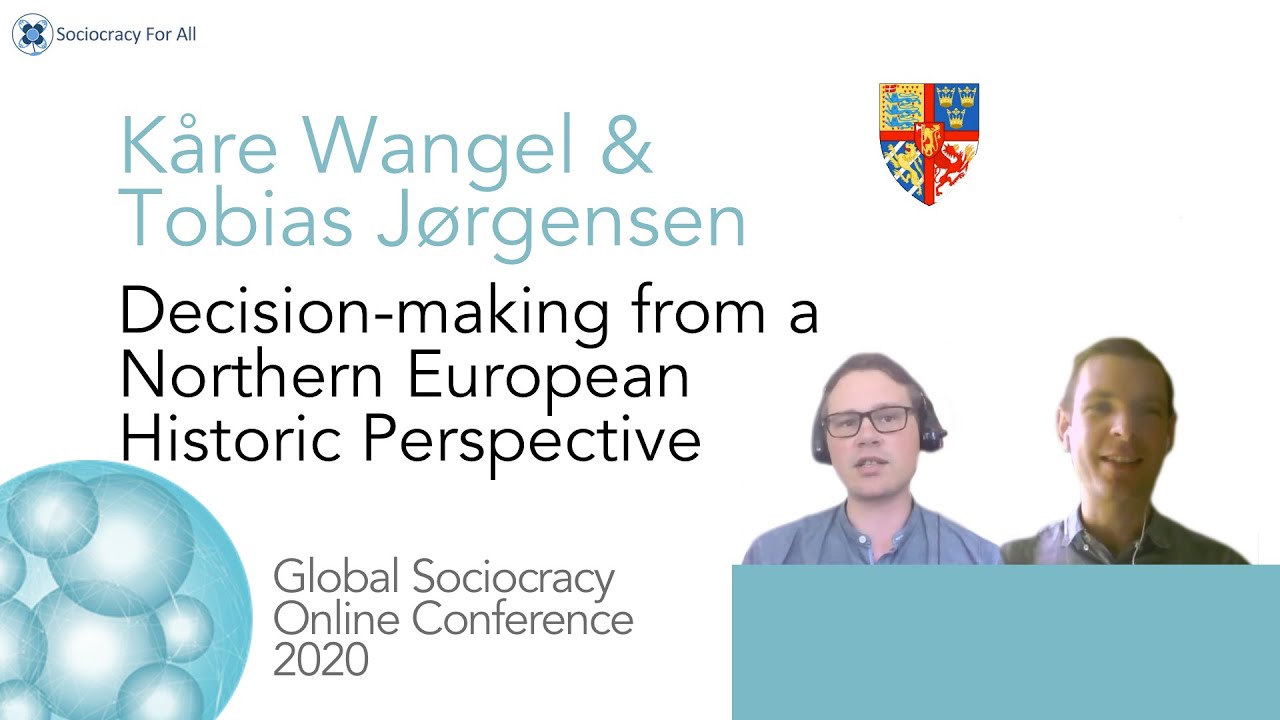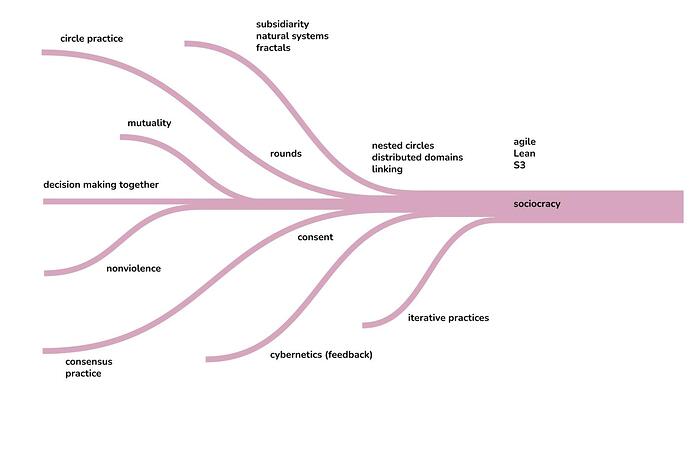After watching Sophie’s talk and reading the discussions, I have an impulse to ask a question.
What if we draw a line between organizations and society?
It’s like drawing a line between organization and family. Yes, we always make decisions in all three systems (family, organization, and society). And they do influence each other a lot and may share the essential values. But my belief at this point is that they are fundamentally different systems with suitable governance tool for each system.
As far as I understand, sociocracy or sociocratic circle method is a governance tool designed and developed for organizations. I can feel that sociocracy community has the aspiration to influence how the whole society operates. But on the very hands-on level, I feel the current state of sociocracy is meant for organizations. And sociocracy is probably one of the most, if not the most, inclusive organizational governance tools that are currently available in the market. In that sense, I feel it’s important that we explicitly acknowledge those people, especially Gerard Endenberg, who managed to create and deliver a concrete package that organizations can practically use. It would be a great loss to not acknowledge the hard effort of initially packaging the right components, testing them to see if they work, translating them to the specific organizational contexts, and modifying them to changing needs. This acknowledgement can be done, while also acknowledging the influences to those packages.
To me, Sophie’s talk and the following discussions feel like the unresolved structural issues at the societal level understandably jumping into the organizational level. And somehow this very important tension that affect all of us got mixed up with the organizational governance tool that is not designed and developed for directly solving societal issues. It’s a different story when we ask the question,
To what kind of organizations does SoFA want to offer the tool?
Then we could say we want to work with organizations that directly tackle structural societal issues. Yet, sociocracy as a tool doesn’t seem to belong only to those organizations that are explicit about social change.
===
Since the image lies within ‘about SoFA’ page,
How about modifying the original image so that it contains the origin and lineage of SoFA?
People are curious about how founders, Jerry and Ted, started SoFA, how they came to meet sociocracy, and why they decided to spread sociocracy. And I assume human connection lineage would probably stop at Kees Boeke. By human connection lineage, I mean Ted learned from Jerry, Jerry from John Buck, John from Gerard Endenberg, Gerard from Kees Boeke and so on.
And for the ‘true’ origin story and development, maybe it could fall into the domain of ‘sociocracy historian’ when such a person becomes available in the future. And I doubt that such role needs to be within SoFA now. That task somehow feels too heavy for SoFA with its limited resources.
![]() ), and has a particular article titled “Culture Change or Same Old Society? Consensus, Sociocracy, and
), and has a particular article titled “Culture Change or Same Old Society? Consensus, Sociocracy, and



